When discussing barriers in her early career, Ruth Bader Ginsburg named three strikes against her trying to find employment in a law firm: “A Jew, a woman, and a mother – that was a bit much.”
When she started law school, Justice Ginsburg had a 14-month-old daughter. In interviews during her lifetime, she attributed her success in law school to her daughter. Ruth Bader Ginsburg passed away in September 2020 and on the back of this it was suggested by Ashleigh DoRozario of the Diverse Abilities Network that a mother within the group write about her experiences of being a lawyer, a mother and a person with a disability.
This article has been in the works since November 2020. Carol Taylor – a mother of a teenage boy – was recommended for the job, however Theresa Jennings – a mother to a newborn – piped up and asked to also be involved. This article is the cumulation of COVID-wreaking work challenges, personal life and health challenges, baby blues, teething and sleepless nights.
Carol and Theresa are two mothers at very different points in their legal careers who share a unique experience – working in law with a disability. They each share their story and reflect back on the wisdom left behind by the Notorious RBG that “so often in life, things that you regard as an impediment turn out to be great, good fortune”.
Carol:
In 2001 my husband Robert and I were relative newlyweds, still in the honeymoon phase and desperate to start a family, but things weren’t going to plan.
It was suggested that we ‘relax’. Our lives were very hectic and work dominated everything. So we bought a 100-year-old sandstone cottage on 100 acres in the Capertee Valley on the other side of the Blue Mountains in Sydney.
One weekend we decided to play hooky and stay an extra night and head home early in the morning as it was only a four-hour drive home.
Every weekend visit to this special place was filled with hope that we would come home with more. Unfortunately on the way home we hit black ice, the car rolled, the roof caved in hitting the back of my neck and instantly severed my spinal cord.
As I lay perfectly still in the aftermath of our car wreckage, surrounded by calm and competent first responders, my legs already seemed to belong to someone else, or to someplace else, a past I was no longer connected to.
In all the chaos the only thought foremost in my mind was whether I would still be able to have a baby. I knew instantly I would never walk again, but it came as a deep shock to discover upon being released from life support and an induced coma that my arms and hands were also paralysed.
Thankfully, I recovered some arm movement although my hands are still paralysed.
In the years ahead I would face many challenges, but while I still had breath I had just one question for my medical team: Would I still be able to have a child? I was told no.
Prior to my injury I had been Principal of my own legal practice in Sydney, but returning to that life in 2001 was impossible. I remember the shame I felt when required to sign a state election form by making an ‘X’ in the ‘sign here’ box. What use was a lawyer that couldn’t even sign their own name? My self-esteem was so low I believed the only job I was suitable for was that of a door stop!
Carol and son D’arcy.
It was the dream of being a mum that kept me going. After several failed rounds of IVF, and repeated miscarriages, my husband Robert and I moved to Queensland and in 2006 miraculously we got our beautiful boy the old-fashioned way. I knew as a quadriplegic mum there would be many things in our child’s life that I could not do, but I was determined to do as much as I could.
In 2015 our son was eight years old, increasingly independent and I began to miss my sense of professional identity. At the same time new the technology emerged that overhauled the way property transfers would occur in Queensland.
Technology was turbocharging regional practices. No longer were we bound by our location or reliant on a shopfront to draw clientele. The advent of e-conveyancing revolutionised the way property lawyers worked. In particular, this technology very much appealed to my paralysed hands.
When I thought about returning to law I was riddled with self-doubt. Who would want me? Would an employer accommodate my needs as a mother and lawyer with disability? I made some discreet enquiries of how receptive the traditional work environment might be.
The feedback was less than fabulous and so I made the brave decision to start my own home-based practice. I am on acreage and built a separate building to house the office; it was necessary to adapt my workspace to accommodate my disability.
I will never forget the overwhelming anxiety I felt taking that very first client call, in fact if it wasn’t for my PA giving me a stern push, I was tempted to do a runner.
At the time I felt very much like a pioneer, a bit of a novelty and sometimes made to feel like ‘the poor cousin’.
What I found was that my disability in fact made me a better lawyer; it enabled me to bring a level of empathy to the table that I did not know I lacked prior to my injury.
When I started my practice, 99% of all conveyancing was conducted under the old paper system. I’m proud that my practice holds the honour of being the first law firm in the state to complete an electronic simultaneous settlement between two properties 1200km apart!
Nowadays 99% of our conveyancing matters are conducted electronically, COVID-19 has flattened the playing field and attitudes have changed. Roll forward seven years and I was shocked to recently be announced a winner of the Queensland Law Society Regional Practitioner of the Year Awards 2021.
In 2015 I didn’t know any other lawyers like me. In 2020 I became a founding member of the QLS Diverse Abilities Network (DAN) which has been wonderful for my confidence. I wish something like this existed when I started my practice.
I have met so many wonderful practitioners that totally ‘get it’ when it comes to disability and diversity issues. With the support of this QLS DAN I was encouraged to be a guest speaker at the Indian Law Society (ILS) Law College virtual three-day international Summit on legal professionals with disability partnered by the Oxford Human Rights Hub, Harvard Law School project on disability and Centre for Disability Studies University of Leeds. Joining the QLS Diverse Abilities Network was one of my best professional decisions.
I now have a front-row seat to all the chaos that is prep for the morning school run and unless an afternoon conference runs late I have the joy of listening to our 15-year-old grunt and groan his way through this and that and somehow I utilise my analytical skills to piece together a rundown of the day’s events, usually interrupted only by the repeated questioning of “what else is there to eat mum?”. I am free to attend school meetings, attend performances and even to help with homework (except math!).
Having successfully run my own practice now for seven years, I can reflect positively on the observations of the late Ruth Bader Ginsburg, that being a parent made her a better lawyer, and being a lawyer made her a better parent, to which I can confidently add, being disabled has made me better at both.
Theresa:
At age 11 I was diagnosed with hearing loss and given some of the worst news a pre-teen could receive: “You need to wear hearing aids”. I hated them! They made me feel self-conscious. This feeling grew while going through high school, and university, and stayed with me into adulthood.
I’ve never had a formal diagnosis of the cause of my hearing loss, but throughout puberty my hearing went downhill dramatically. At one point it was even suggested that there was a good chance I would lose all my hearing by the time I was 30.
Losing my hearing on the cusp of puberty caused me to withdraw. I became the quiet girl… afraid of speaking up, or out of turn, for fear of repeating something someone had already said, or saying something that wasn’t even relevant to the conversation.
Listening is such a fundamental life skill and this is especially true for lawyers. Our role requires us to truly listen – not just hear – what our clients share. As I’m sure you have experienced, listening and really paying attention can be exhausting, even with perfect hearing.
My hearing loss means I can only understand roughly 50% of speech. This causes my brain to get fatigued easily if I have to listen for a long time in meetings or conferences. I rely heavily on lip reading and non-verbal cues to listen and communicate effectively. This is why for the majority of my life I have actively avoided telephones as I can hear noise, but I cannot understand what that noise is actually telling me.
Unlike Carol’s experience with working in law with a disability, my workplace is everything I could have hoped for. I am an in-house lawyer at Cancer Council Queensland; a role that came about after I started as a volunteer back in 2014.
My manager is supportive and understands that I don’t always catch everything that is said to me, especially on the telephone. Over the last six years I’ve been pulled out of my shell and encouraged to speak up… and make telephone calls! My confidence has grown, as has my acceptance of my disability, and the fact that I can be a lawyer with a disability.
Because of my disability my workplace has held a ‘deaf awareness day’ where my colleagues had the opportunity to learn about hearing impairments/deafness and ask questions. This not only benefitted those with friends or family with hearing loss, but also multiple teams within the organisation, particularly those that provide services to cancer patients and survivors who are likely to experience disabilities because of their cancer.
Theresa with baby Evie.
By the time I had been working as a lawyer for three years I was tired of using a telephone captioning service that was, in all honesty, rubbish, and I started to think that I needed some guidance on being a lawyer with a disability. I thought that surely there must be someone else in the profession with a hearing impairment as well. I attended the 2019 QLS Succession and Elder Law conference where I plucked up the courage (with a racing heart and sweaty palms) to ask the team behind the QLS stall whether they knew of any lawyers who were deaf.
The answer? An enthusiastic “No, but we will certainly look into this for you.”
This one question, asked with false bravado and brought about by the simple need to connect with someone who knew what it was like to have a disability and work as a lawyer, was a catalyst for the formation of the QLS Diverse Abilities Network.
This question also brought on a unique opportunity for me to present at the QLS International Day of People with Disabilitiesevent. I was invited to tell my story of being a deaf lawyer.
That was scary enough, but add in the fact that I was in the first trimester of my pregnancy and a stone’s throw away from bringing up my breakfast. In hindsight I am amazed it went as well as it did.
I shared with the QLS team my experiences and challenges and imparted strategies that they could use to communicate with people with a hearing impairment. Despite the uneasiness of openly talking about my hearing loss and experience with complete strangers, the whole experience was very rewarding and the positive reception I received was gratifying. It really was not that scary telling people, “Hi, I’m Theresa and I am a deaf lawyer”.
So things were beginning to look up for me as an early career lawyer with a disability. But the anxiety of becoming a first-time mother began to set in…
- How would maternity leave for one year affect my career?
- Would not using telephones affect my phone confidence upon my return?
- It took four years to get comfortable with networking, would I need to start from scratch again?
- Would my brain fatigue quicker if I returned to work sleep-deprived?
- How hard is it going to be to raise a baby when I’m deaf?
In June 2021 I returned to work after 12 months of maternity leave and the fears I had about taking a year off to become a mother all seem so trivial now. In fact, becoming a mother has made me proactive about finding solutions for my personal and professional vulnerabilities.
During maternity leave I bought a mobile phone that live-captioned calls so that I would not lose my nerve talking on telephones. I continued to attend the Diverse Abilities Network monthly meetings (sometimes with baby in tow, amusing the group with her antics) so that I could continue to network and keep in touch with my peers. I volunteered to be a panel speaker for two events held by the Diverse Abilities Network. I even volunteered to co-write this paper – which I admit is the real reason this paper is so very late.
As for wondering how quickly my brain would fatigue due to sleepless nights… well, I can barely hear anything when I am not wearing my hearing aids. So, unlike my sharp-eared partner, I go to work with a full night’s sleep most of the time.
Advances in technology now mean that I no longer need to rely on a rubbish external captioning service. Instead, Microsoft Teams now provides live captioning of calls. Since returning from maternity leave, I have been overly willing to talk to people on the telephone!
My manager and I work part time, however we often have a full-time workload. Before I fell pregnant I would happily stay in the office until I felt satisfied with what I had achieved that day. Now I leave the house at 6.50am and eagerly wait for 4pm so that I can get home and see my daughter. It is this anticipation of seeing her that encourages me to work more efficiently during my day – so that I get everything done and can be home by 5pm.
Reiterating what Carol has said, I truly believe that I am a better lawyer and mother because I have a disability.
This article appears courtesy of the Diverse Abilities Network. For more information on the network, please contact Daniel Brennan at QLS, d.brennan@qls.com.au.

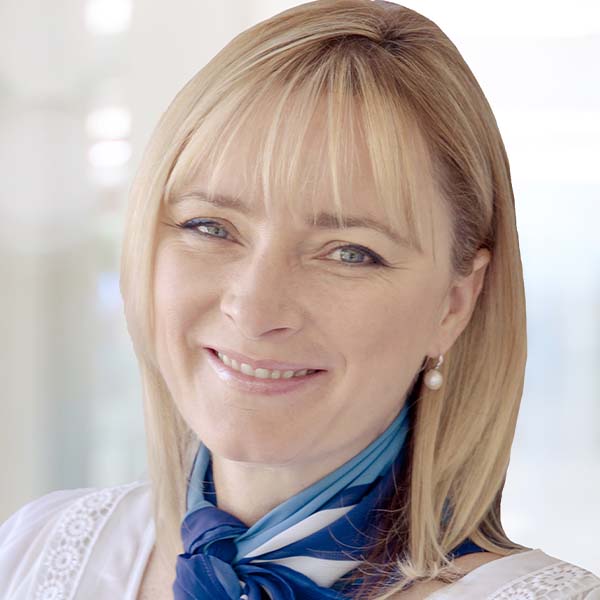
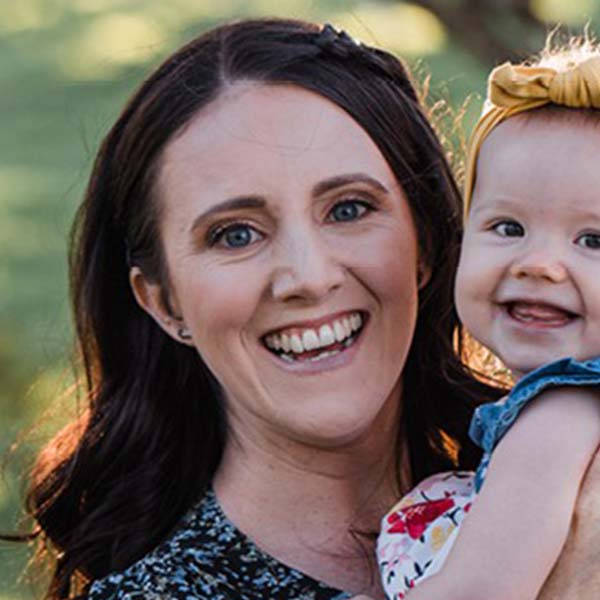
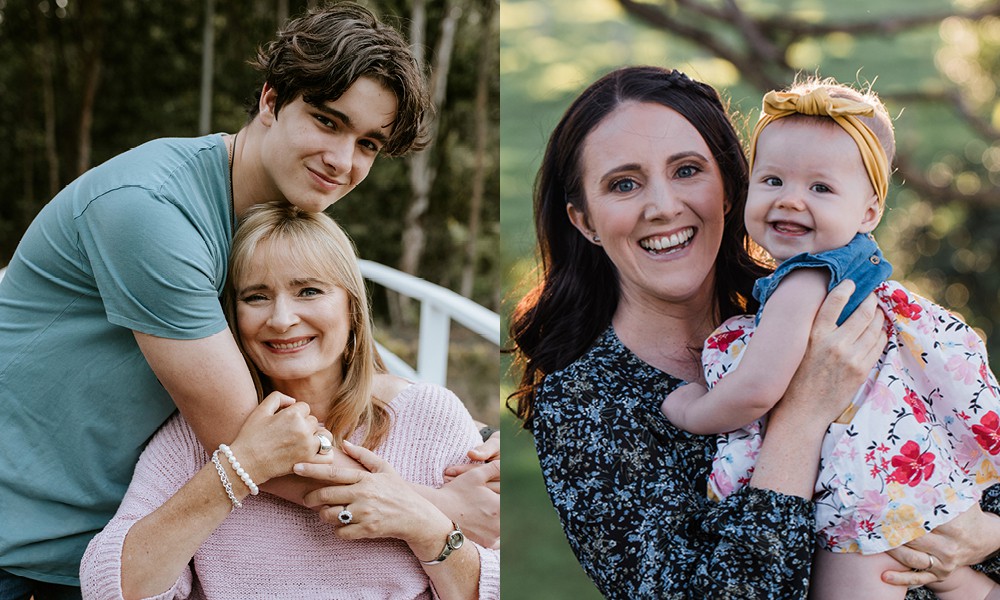
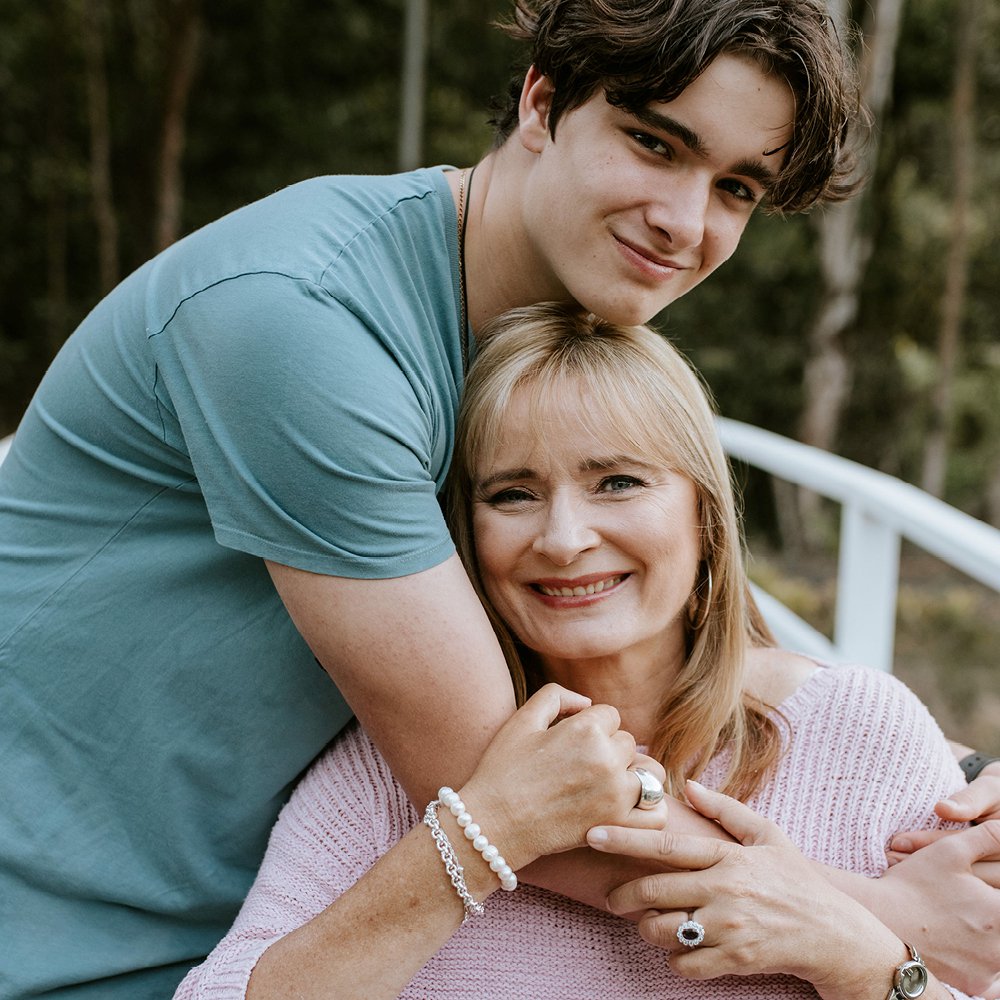
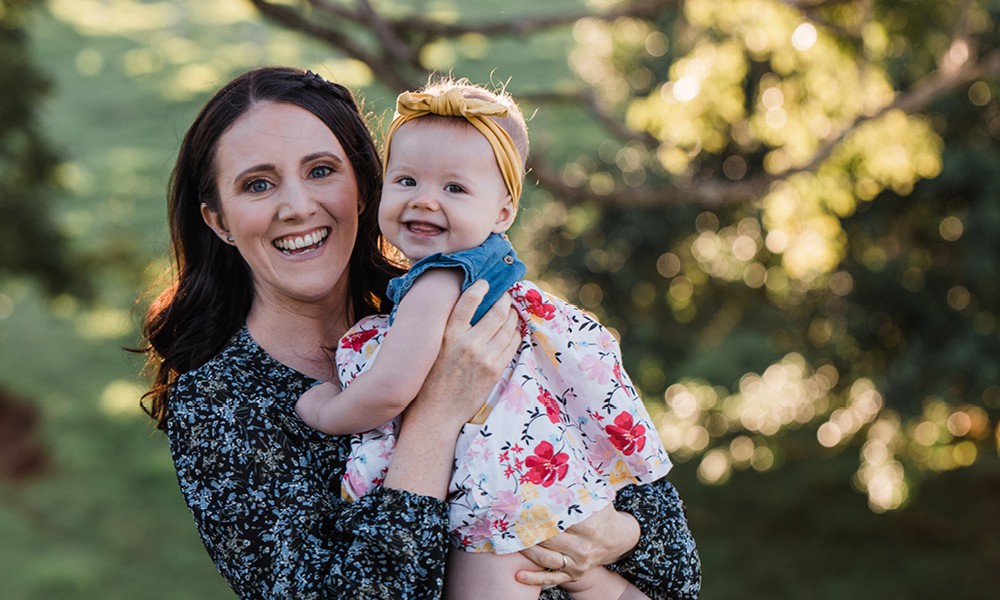



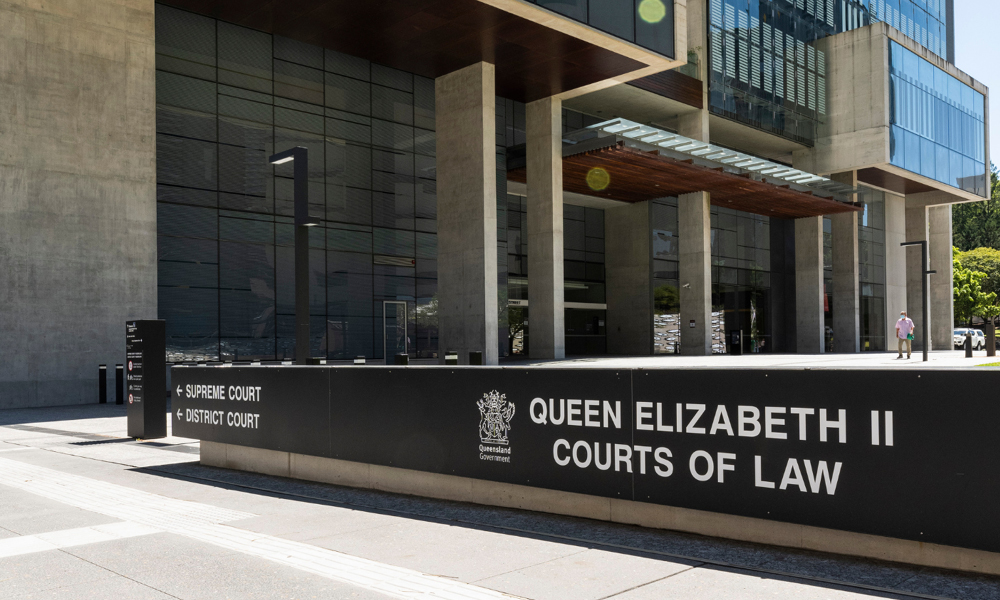




Share this article